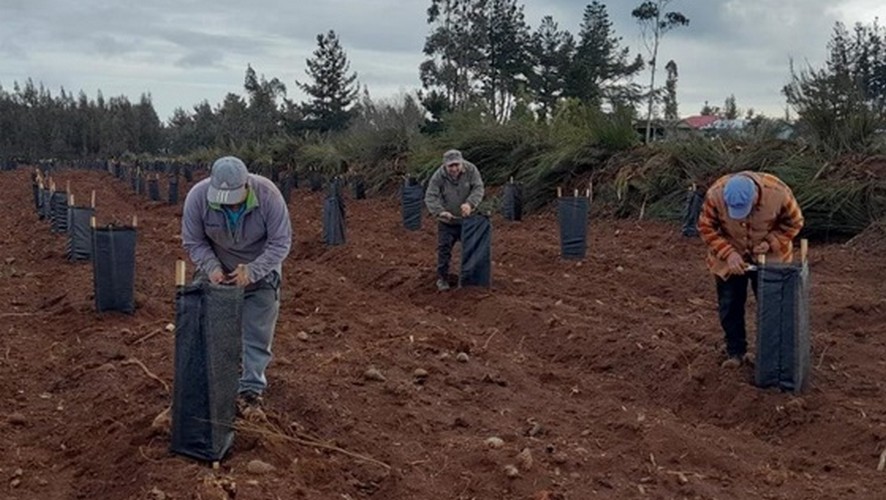- This research and technology transfer initiative aims to promote sustainable forestry practices focused on mitigating climate change and enhancing biodiversity in plantations dominated by these species in pre-mountainous areas.
The Forestry Institute (INFOR) of the Ministry of Agriculture, together with the Catholic University of Temuco and the Austral University of Chile, conducted a training course for researchers, extension agents, professionals, and consultants from public and private institutions linked to the forestry sector. The goal was to develop ecological silvicultural systems that contribute to biodiversity recovery and timber production in coihue and raulí-dominated plantations. The initiative was funded by the Fund for the Promotion of Scientific and Technological Development (FONDEF).
The course "Ecological Silvicultural Systems for Plantations Dominated by Coihue and Raulí" covered a comprehensive evaluation of plantations, where participants learned to consider timber production, carbon capture and storage, and floristic diversity in both traditional and ecological silvicultural systems.
Pablo Donoso Hiriart, professor at the Austral University of Chile and alternate director of the FONDEF project, highlighted that the initiative seeks to mitigate climate change and promote productive, diverse forests by proposing a silvicultural model applicable in areas with mixed conventional plantations.
"This ecological silviculture system is ideal for landowners who want diverse and aesthetically valuable forests capable of producing timber. It is applicable to private owners as well as national reserves, state, or municipal forests, adding a valuable tool for forest management," he explained.
Ecological criteria, permanent cover
The course was supported by various organizations, including the National Research and Development Agency FONDEF, Forestal Arauco through its Bioforest research center, and the National Forestry Corporation (CONAF). The event also facilitated the exchange of experiences in production, thinning, and pruning techniques in pre-mountainous areas of the Andes.
Celso Navarro Cárcamo, forestry engineer, academic, and director of the project at the Catholic University of Temuco, emphasized that "the course benefits from the collaboration of several institutions to assess biodiversity, carbon capture and storage, as well as the timber products these plantations could yield. With these inputs, the project contributes to the development of new afforestation models based on native species."
Meanwhile, INFOR researcher Oscar Larraín stressed that "the innovative and important aspect of this program is that it lays the groundwork for managing plantations under ecological and permanent cover criteria, incorporating new models and approaches into traditional plantation management in Chile."
The expert noted that both coihue and raulí are native plantations and stated, "We must continue advancing in the management of other species' plantations and later incorporate species that arrive through a more successional concept into these new plantations we are managing."
During the course, the principles of ecological silviculture were also discussed, which include maintaining ecosystems rather than just timber, seeking complexity, diversity, and continuity of forests, preserving options for the future, and practicing silviculture within a landscape context, among other aspects.







Comments (0)
No comments yet. Be the first to comment!
Leave a comment